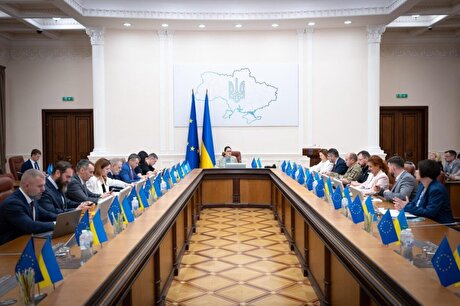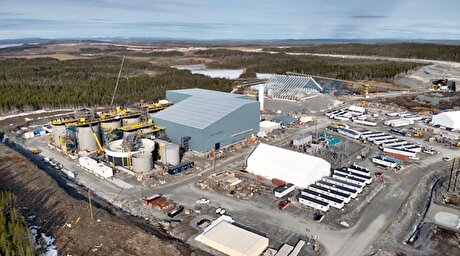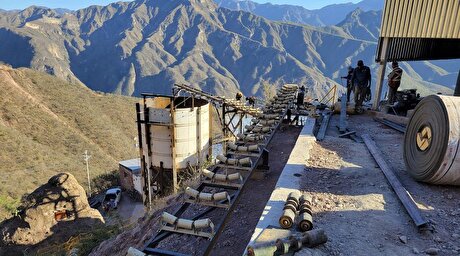
Foreign Investment Trickles Into Iran’s Capital Market

The amount of foreign investment in the country, including direct and portfolio investment, is reported to have been quadrupled since the implementation of the landmark nuclear deal known as the Joint Comprehensive Plan of Action in mid January 2016.
Still, the figure comprises less than half a percent of the total market capitalization. The percentage does not include the amount invested in Iranian mutual funds.
The share of foreign investment is, admittedly, meager considering the size of Iranian markets and economy compared to some neighboring countries like Turkey where 90% of the market are owned by foreign investors.
Many associate the problem with lack of connections between Iranian banks and their foreign counterparts. Legal issues related to sanctions imposed against Iran are not blocking the connection but it is the pure result of foreign banks’ business strategy, for which they claim Iran’s business volume is not worth the US frown.
Technically speaking, the problem with Iran's capital market stems from lack of custodianship services.
“The subject of international banks acting as custodian in Iran was being followed up before 2010 when many international banks had active presence in Iran but it required multilateral contractual relationship between Central Securities Depository of Iran and Iranian and foreign banks,” said Ramin Rabiee, chairman of the Board of Directors at Turquoise Brokerage Co. and the founder of first offshore equity fund focused on Iran, in an interview with SENA.
There are about 10 big international banks with custodian services, out of which at least seven are American, so no international custodian in Iran is expected for the foreseeable future.
Rabiee went on to say that when it comes to attraction of foreign investment, there are several shortcomings like absence of custodianship, harmonized rules and regulations as well as poor compliance, which are not expected to be resolved in the short run.
Consequently, foreigners are reluctant to set up a portfolio of securities in Iran, except for small quantities, transferred through non-banking channels, many of which are retail investors. This inevitably imposes money laundering and compliance concerns. It takes a long time to see big international funds adding Iran to their portfolios.
Even so, there are strategic investors who opt to buy the management shares of listed companies to secure voting seats and are planning for a long-term presence in Iran’s industrial sectors.
A handful of foreign entities with huge stakes in listed companies from the chemical sector make up more than 90% of foreign investment in Iran's capital market.
Even in the case of Turkey, foreigners act mainly as strategic investors and do not trade frequently.
The 90% foreign investment in Turkey comprises only 10% of their total trade value.
“We need to focus and facilitate the presence of foreign parties interested in taking over local companies but it requires decisive decision making on the part of our officials. There are numerous cases where buyers and their money are ready, but it seems no one on the other side of the table is making the final call,” Rabiee concluded.


Energy Fuels soars on Vulcan Elements partnership

China extends rare earth controls to imported material

Galan Lithium proceeds with $13M financing for Argentina project

Northern Dynasty sticks to proposal in battle to lift Pebble mine veto

Ukraine launches tender for major lithium deposit

KoBold Metals granted lithium exploration rights in Congo

Freeport Indonesia to wrap up Gresik plant repairs by early September

Critical Metals signs agreement to supply rare earth to US government-funded facility

Kyrgyzstan kicks off underground gold mining at Kumtor

Equinox Gold kicks off ore processing at Valentine mine

India considers easing restrictions on gold in pension funds

Luca Mining expands Tahuehueto mine with Fresnillo land deal

Kyrgyzstan kicks off underground gold mining at Kumtor

Ukraine launches tender for major lithium deposit

KoBold Metals granted lithium exploration rights in Congo

Freeport Indonesia to wrap up Gresik plant repairs by early September

Energy Fuels soars on Vulcan Elements partnership

Northern Dynasty sticks to proposal in battle to lift Pebble mine veto

Giustra-backed mining firm teams up with informal miners in Colombia

India considers easing restrictions on gold in pension funds

Luca Mining expands Tahuehueto mine with Fresnillo land deal

Kyrgyzstan kicks off underground gold mining at Kumtor

Ukraine launches tender for major lithium deposit

Freeport Indonesia to wrap up Gresik plant repairs by early September

Energy Fuels soars on Vulcan Elements partnership

Northern Dynasty sticks to proposal in battle to lift Pebble mine veto

Giustra-backed mining firm teams up with informal miners in Colombia

Critical Metals signs agreement to supply rare earth to US government-funded facility

















